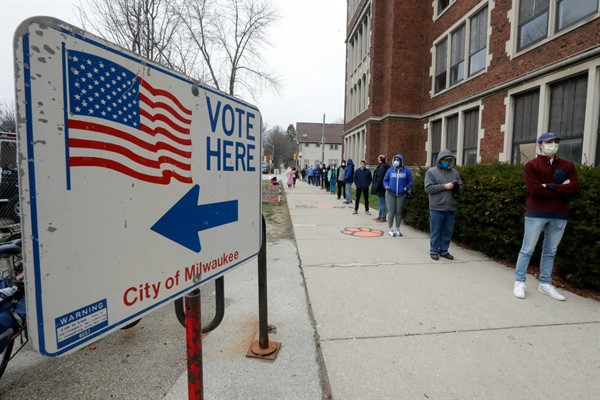If the April 7 Democratic presidential primary vote in Wisconsin was a test of American democracy’s ability to handle the coronavirus pandemic, then by many accounts, it failed. The lead-up to the election was marred by last-minute partisan wrangling and poor communication with the public. Thousands of absentee ballots went missing or undelivered. And when people showed up to vote, they encountered crowded, under-resourced and under-sanitized polling stations. The state’s leaders have been widely condemned for forcing voters to choose between their health and their democratic rights. Wisconsin’s example shows that without proper preparation, voters across the country could face similar conditions for the general election in November.
The coronavirus pandemic has already undermined and disrupted many democratic processes around the world. Forty-seven countries or territories have cancelled or postponed elections in response to the pandemic, according to the International Institute for Democracy and Electoral Assistance, while 16 U.S. states have postponed their Democratic primary votes so far. But there are a few jurisdictions that forged ahead with election plans, and they provide a study in contrasts of what democracy can look like during a pandemic: the chaos of Wisconsin or the efficiency of South Korea, whose parliamentary elections last week won praise globally as a model for an organized, safe vote.
According to Sylvia Albert, director of voting and elections at the progressive advocacy organization Common Cause, Wisconsin’s government was simply unprepared for the challenge that COVID-19 presents to democratic systems. Election officials were “trying to execute their normal system in an abnormal or extraordinary time,” she said. “The lesson here is that you cannot do things the same way that they’ve always been done, or else Wisconsin is going to be the result.”

